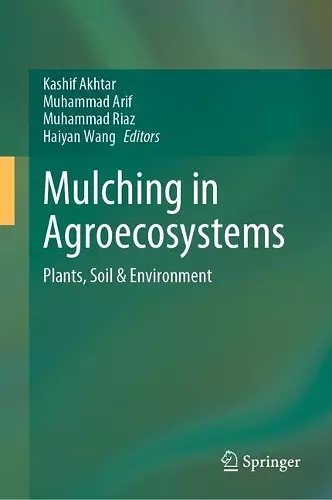Mulching in Agroecosystems
Plants, Soil & Environment
Muhammad Arif editor Haiyan Wang editor Muhammad Riaz editor Kashif Akhtar editor
Format:Hardback
Publisher:Springer Verlag, Singapore
Published:26th Nov '22
Currently unavailable, and unfortunately no date known when it will be back

This book explores the benefits of mulching in agroecosystems, focusing on its impact on soil health, nutrient efficiency, and crop yields.
The book Mulching in Agroecosystems delves into the critical role of mulching in enhancing soil health and agricultural productivity. It highlights how increasing soil organic matter (SOM) through residue return can significantly improve nutrient availability, as well as the physical and biological properties of soil. The authors discuss the various benefits of mulching, including its ability to conserve soil moisture and boost the efficiency of both macro- and micro-nutrients. These improvements lead to better crop yields while simultaneously promoting long-term soil health and quality.
As the global population rises and climatic changes intensify, the pressure on soil and water resources escalates. Mulching in Agroecosystems addresses these pressing challenges, emphasizing the need for sustainable practices that enhance nutrient and water use efficiencies without compromising food security. The book explores management practices such as straw mulching and incorporation, underscoring their positive effects on soil health and the environment. It also examines the balance between organic and inorganic fertilizers, revealing how this co-use can mitigate N2O emissions while maintaining crop yields.
This comprehensive resource is designed for a diverse audience, including researchers, academics, farmers, and climate activists. By presenting the latest developments in mulching techniques, Mulching in Agroecosystems serves as an essential guide for anyone looking to improve agricultural practices and contribute to sustainable food production.
ISBN: 9789811964091
Dimensions: unknown
Weight: unknown
404 pages
2022 ed.